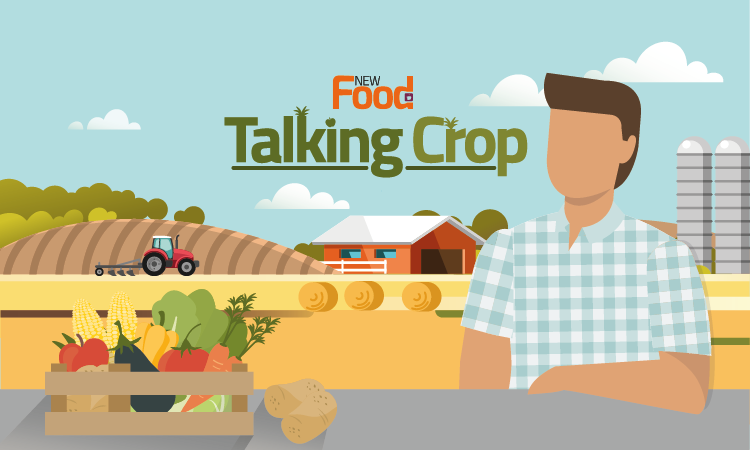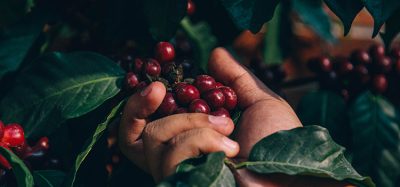There is more change to come for the food sector
- Like
- Digg
- Del
- Tumblr
- VKontakte
- Buffer
- Love This
- Odnoklassniki
- Meneame
- Blogger
- Amazon
- Yahoo Mail
- Gmail
- AOL
- Newsvine
- HackerNews
- Evernote
- MySpace
- Mail.ru
- Viadeo
- Line
- Comments
- Yummly
- SMS
- Viber
- Telegram
- Subscribe
- Skype
- Facebook Messenger
- Kakao
- LiveJournal
- Yammer
- Edgar
- Fintel
- Mix
- Instapaper
- Copy Link
Posted: 24 August 2020 | Gideon Ashworth | 1 comment
In a reflective piece, Gideon Ashworth looks back at the change industry has had to endure and urges professionals to remain focused on the fundamentals of safe, quality and compliant food whilst keeping an eye on the change to come…


I don’t know about you, but I cannot remember an era (during my lifetime that is) that has been so disruptive (and therefore intriguing) as now. Although I might not be long enough in the tooth to have experienced a world war, I suspect that our generation will be recounting COVID-19 tales for decades to come.
While some individuals, companies and industries are thriving through the pandemic, others are not so fortunate, and I offer my sympathies to those of you who have lost loved ones or colleagues to COVID. We are experiencing a period of significant change, from lifestyle perspectives, career learnings and business opportunities. Perhaps most important, is the change our food industry is witnessing, with technical endeavours and a vast of regulatory developments coming to the fore.
Some years ago, on the return leg of another work trip to Latin America, I stayed with an old friend – a wine importer into the USA. As we chatted and wandered around the streets of New York, he uttered the words “the only constant is change”. Today that phrase seems rather pertinent.
As we edge closer to a post-Brexit reality and begin to forge new trading relationships, we must adapt to potential new regulatory requirements. Although these regulations will need to find a common ground (or ‘equivalency’) on multiple levels in order to move towards a viable and as-seamless-as-possible transition, it is apparent that challenges will arise. For example, the recent discussions over a trade agreement with the USA has highlighted the UK consumer’s concerns over chlorine washed chicken, hormones in cattle, and pesticide usage/ Maximum Residue Limits (MRL’s) in crops. There are numerous drivers behind trade deals with global economies, and it is a certainty that they will happen in various guises. There will be change.
If our global food supply bases are affected by one or more likely variables; incomplete trade agreements, currency instability, geopolitical insecurity, war, climate change, an ongoing (or resurging) pandemic, we may be in for some serious and significant supply shortages. This scenario will ultimately require some level of Government intervention. Recognition and understanding of the multiple global regulatory guidelines will be valuable skill sets to support our purchasing and sales colleagues within our individual companies, and to support the flexibility of trade on national level.
The UK’s Agriculture Bill has been in development for the past few years with an ethos to underpin the future security of our farmers, our countryside and our national food security; for which the bill aims to ensure a regular five-yearly review. From my perspective, the appointment of a Minister for Food Security is a welcome addition for the UK, although it does highlight that we are an island nation with an ever-increasing ratio of imports over domestically produced foods.
Whilst the increased imports might be an indication of diversifying culinary tastes and an increasing affluence within our consumer base, we need to strike the balance of supporting our farmers while enjoying the opportunities and privilege of choice. Furthermore, food security is not only a national concern; food insecurity is an increasing reality for many families within the UK. As the economic anxiety fallout of the COVID-19 pandemic spreads, there are likely to be more families relying on or supplementing their weekly food shops with foodbanks and other means of support.
At the start of this year, few of us would have imagined the scale of change we have had to adapt to over the last few months. I acknowledge the food industry’s ability to cope throughout this period, but I predict further adjustment is on the horizon. Although some find change a daunting prospect, a stepping into the unknown, there are opportunities to be seized. There are potential opportunities to create better systems, whether that is on a micro scale within our own farms and production facilities, or on a global scale – can we find a utopia global agri-food chain model that satisfies national food security requirements balanced with regulatory equivalency?
In my first Talking Crop, I speculated on an increased risk of hazards in foods as a direct result of COVID-19. Whether food safety or quality, or one of those being the driver behind compromised authenticity leading to a spike in cases of food fraud. We, as food technical professionals, should remain focussed on the fundamentals of safe, quality, compliant food for our companies and consumers, whilst keeping half an eye on the changing world around us. Afterall, change would be happening despite politics and pandemic – just maybe not with such ferocity.
If you have been pondering the scale of change, as I have, and what lies ahead, I repeat those words that my friend spoke to me all those years ago: “The only constant is change”.
Related topics
COVID-19, Environment, Food Safety, Recruitment & workforce, Regulation & Legislation, Research & development, Supply chain, Technology & Innovation, The consumer, Trade & Economy








Changes are happening and food services and industries more likely to come up with new technology to avoid direct human contact. And inclining more towards automation.